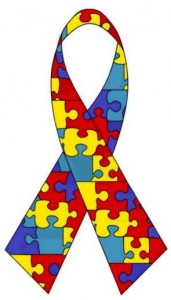You would think that a question, such as “what is autism advocacy to you?”, would be pretty straight forward. However, if you ask a few thousand people that question, you’ll very quickly realize that it’s most definitely not straight forward.
Advocate
verb
1. to speak or write in favor of; support or urge by argument; recommend publicly: He advocated higher salaries for teachers.
noun
2. a person who speaks or writes in support or defense of a person, cause, etc. (usually followed by of ): an advocate of peace.
3. a person who pleads for or in behalf of another; intercessor.
4. a person who pleads the cause of another in a court of law.
I think everyone can agree that, even though there is an official definition, there is no one way to be an advocate.
Autism Advocacy
So I asked what Autism Advocacy is to people on various social networks and thought I’d share some of the responses with you:
#empowerment #support to let families affected by #Autism , #ASD , & #FragileX know ‘they are not alone’
Active support that raises awareness, results in change & aid 2 individuals & families.
For me it means donating money to autism research, doing walks for autism, striking up a conversation about it with strangers in the checkout line, at the park or wherever. Online, it means posting articles, videos, blogs etc talking about different aspects of the disorder. I think it is a combination of these things, as well as being a “voice” for those people affected by it.
Raising awareness of the breadth and scale of autism and reminding people it is a life long condition. I certainly have got into the habit of posting articles / starting conversations about issues on autism.
Autism Advocacy on a parental level is educating the awareness of the challenges you face everyday with your child who is diagnosed. Especially with your community leaders, your local government, and advocating for change to enhance and strengthen the bonds of Autism Families. Most families are not able to financially support the intervention that is provided through health insurance, Fundraising is important aspect of providing those needs to your family. Structure is vital for children with Autism.
I even got some responses such as this one:
Unfortunately, mostly very loud parents.
Which may bring you to feel upset at first but I think when you really think about it and think back to some of the other parents you may have come across in your life, this actually may be true… maybe not “mostly” but certainly some do qualify.
You can quickly see just how varied the answers are. They’re all advocates but they look at the tasks, the targets and those they’re advocating for quite differently.
Who are some good Autism Advocates?
I also asked who people felt are good autism advocates. Many people named Temple Grandin, some people mentioned people on Twitter, such as @Diaryofamom, @shannonrosa, @CorinaBecker, @AutismWomen and @LauraBShumaker.
The response from some parents where that they, themselves, were the best Autism Advocates. Why?
Well, as the parent of a child with Autism, no one could advocate for their child better than they could.
But this brings us back to the first question, what is Autism Advocacy?
In a rather amazing bit of good timing, Jim (@GingerHeadDad) wrote this just yesterday: http://gingerheaddad.wordpress.com/2011/08/30/what-is-wrong-with-just-being-a-parent/
I had written several replies in his comments but never hit submit on any of them. I felt I wasn’t expressing myself clearly, I felt I wasn’t doing his post justice. I felt… I felt that the questions that I had been asking essentially are the response to his post that I am looking for. So I decided to write up a blog post of my own in response and share that in his comments…. which brings me to this:
Autism Advocacy – As Defined By Stuart Duncan
Autism Advocacy is the speaking up about, speaking on behalf of, speaking in support of, speaking in defiance of and speaking in defense of yourself, a loved one, all people with Autism or for Autism in general whether you are speaking to yourself, one other individual, a group of individuals or the entire world.
What does that mean?
It means that it doesn’t matter how much money you’ve donated, if you’ve created laws, written books, built buildings or if you’ve informed a family member, had a teacher recognize a special situation involving your child, had an impromptu discussion with a stranger or even if you’ve simply come to self realizations all on your own…. you are an Autism Advocate.
Never feel like you aren’t doing enough simply because your advocacy efforts are focused on those you love.
That change you made in a teacher, that stranger you talked to, that family member that has a better understanding… they’ll carry that forward to the next time they encounter someone with Autism and it will affect them. You will have made a difference.
Always accept that you feel you could do more but never let yourself feel like you haven’t done enough.
We all see advocacy differently. We all see Autism differently. We all have a different view that leads us to different goals.
It’s not about the number of people that hear you. It’s not about the size of the changes you can inspire in the world.
Big or small, loud or quiet, we are all advocates.
————————————————————
To the world you may be just one person, but to one person you may be the world. ~ Brandi Snyder












